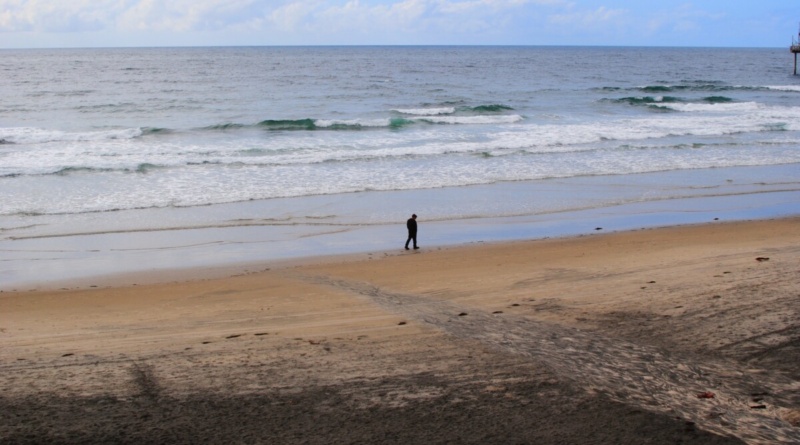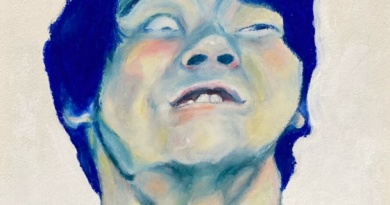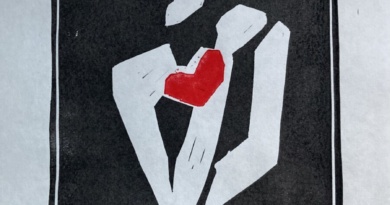Sand and Paper
PHOTO: by Shuxin Li ’24
By Truman Duren ’24 for Spoke Literary and Art Magazine
He told me he was fine. But he was going away for a while. I asked him where, but he never gave me a straight answer. I asked him why, but he responded that he did not see a place for him. I never knew what that meant.
As the days passed, I watched him to see what he would do, where he would go. But selfishly, he walked beside me as if we had never known each other. It must have been a waiting period, and he was not obligated to speak to me again. Each day, I saw something wrong with him.
He walked the first day with wetted sneakers. The next day, the shoes had grown blades of grass. He walked the third day with tattered clothes. The next day, the rags had a layer of dirt. He walked the fifth day with leaves in his hair. The next day, the leaves had taken root in his pant legs. On the seventh day, a twine of orchids spread across his face. The next day, the orchids didn’t need the string. On his last day, he shut his eyes and dragged his hand along the wall. He waited for his world to send him home.
When he was gone, we rarely spoke of him. When we did, we regarded him as unworthy, that we had taken part in a goodwill he did not deserve. Strangely enough, though we had known him for years, no one could remember where he had come from. We saw no expression on his face, no means of articulation beyond what he said to us, and even that never made sense. But I began to see him in what I did, hearing him on the radio in his sing-song voice. Our conversations where he had confided to me had stayed in my mind. I tore myself apart, imagining what I could have done to keep him with us. It was such that when I tried to look for him, it was no feat, as I had been looking since he had been gone.
I traced a shimmering lake around its border, with each dozen steps leaving a sock, a shoe, and another piece of myself to find him. I followed the ripple from the sand, blinking in the morning light. Beyond the lake, I traced a pine tree by its nettles, feeling its sharpness, a radiance of pain and discomfort from its hiding place beneath the soil. He lay there, submerged beneath the earth with a layer of dirt covered over him and a bed of flowers crossing over him diagonally like a sash of courage. I uncovered his face to talk to him, but he buried himself again. The dirt washed over him, but he held his hand out as an open invitation. I told him he had condemned himself and those who cared for him. I told him that we spoke of him every day. But he would not listen to what I had to say about him. He only wanted to hear about me. When I failed to reach him, I obliged and told him of life since he had left. He held his hand out in pity, comforting me as if I were the one who had left. But he seemed unbothered, speaking more for himself than me.“I couldn’t see what was wrong with me. Now I know.” He picked a flower from his sash and grasped it as he drew it back inside the dirt. He sat silently, expecting I had left, and spoke only for himself. “I’m not so bad.”
I was by his side all night, but I don’t think he cared if I stayed or went. I walked home. Every thousand paces, I collected parts of myself that lay spread across the sand.




